There’s a new leader in town. On July 18, 2022, Brandon Hill, PhD, began his position as Interim President & CEO at Vivent Health. Mike Gifford, former CEO, exited the organization after nearly 30 years of leadership.
These are exciting times at Vivent Health, formerly the AIDS Resource Center of Wisconsin. Under Gifford’s leadership, Vivent had grown from a modest local resource to a multi-state operation serving more than 13,000 patients in four states. In July, the organization announced it would relocate from its historic Milwaukee home at 820 N. Plankinton to a new $9M headquarters and clinic at 1311 N. 6th Street.
We sat down with Brandon for a digital meet and greet—and a Q&A on the future of Vivent Health.
What do you think of Milwaukee?
I am from the Midwest and grew up in northwest Indiana. I attended Indiana University before moving to Chicago. I always kept a Chicago base, no matter where I worked, including my house outside Lake Geneva. Now I’m living in the Third Ward, just a quick walk from our office.
Milwaukee has a really vibrant, visible, and active LGBTQ social scene. To me, that’s the most striking thing about the community—even coming from Chicago. There are so many LGBTQ-owned establishments here: bars, restaurants, shops, and it’s really refreshing to see that. You read articles about half the gay bars going extinct, but in Milwaukee, there are more than I expected. There are so many places claimed as queer spaces. This is comforting to see. I still have to make my way through all of them. I wasn’t able to participate in Summerfest, but I was able to participate in the traffic.
I’m also impressed by the Riverwalk. Chicago is on a riverfront, but it doesn’t feel like a river city due to the altitude. Here, the river feels integrated and essential, along with the businesses and activities that happen there.
Compared to Chicago, Milwaukee also feels much more tight-knit. People know me before I know them. Whether it’s at a fundraiser, an LGBTQ space, or even on the sidewalk, strangers are always introducing themselves to me and sharing their respect for Vivent Health. Many saw me first in the Business Journal and wanted to welcome me to the city. They’re so comfortable breaking the ice. I appreciate this more than they know. When you first move somewhere, you don’t know anyone! So it’s nice that people freely show hospitality, respect, and gratitude…. It creates a true feeling of togetherness, and in turn, that fosters connections, collaboration, and progress. Chicago is so big, and somewhat disparate, with everyone scattered across the neighborhoods.
What have been your initial impressions of Vivent Health?
Over the past three months, I’ve had a chance to visit our health centers across the Vivent map, inside and outside Wisconsin. The amount of work that our staff and volunteers do at Vivent is amazing. And I’ve seen our care model in practice: We really think about HIV care in the most holistic fashion you can imagine. We think about food, housing, social determinants of health…. These things become the medicine we use to treat people. I recognize this is the long-standing “secret sauce” that makes Vivent so unique. It’s all about treating the individual who has a chronic condition while treating all of the aspects of their life. That’s how we get the best health outcomes possible. That’s what makes Vivent so unique.
How does it feel to be a newcomer leading a legacy organization?
Like most AIDS service organizations, Vivent’s roots were planted in a moment of crisis. Those crises were not being acknowledged or responded to by local or national governments. The call to action came from within the community. All members of the LGBTQ community were working side-by-side, out of necessity, even though the epidemic was mainly affecting gay and bisexual men. There was no time and no luxury to think about what AIDS care would look like 40 years later.
When you look at the timeline of any AIDS support organization, and especially Vivent, there have been moments that allowed forward thinking and planning. First, coming together and responding to the crisis; second, advancing medicine from these huge, arduous treatment regimens to a single pill/single treatment model. Those advancements allowed us not to just comfort sick, suffering, and dying people, but consider all of the factors they need to manage in conjunction with their chronic condition.
That forced an opportunity for ARCW to think about what long-term looks like. That allowed us to develop the HIV medical home. If someone’s going to live for another 40 years, we have to think about dental care, behavioral health, and so much more. One pill a day is just part of a multifaceted life—we really need to look at how those other things intersect with care and treatment. That’s what worked great for ARCW and other organizations have noticed. They didn’t necessarily want to replicate, but they wanted to be part of this, and extend this. The biggest benefit is working in scale: Not being limited to state boundaries.
Most of Vivent’s growth has been being invited to merge with other organizations where we have communities of need. There’s a reason there’s not a Vivent in San Francisco or New York. They have excellent services in place. Other places have extremely limited resources or no resources at all. If we join together, we can create the biggest impact.
How has the HIV Medical Home concept transformed care?
Here’s the best way I can explain the concept: Think of an ecosystem around an individual living with a chronic condition. First, we provide medicine through care and prescription drugs. We want to provide that in the most inclusive, specialized, and knowledge way possible. Then, we address mental and behavioral health needs, if services are needed. We evaluate access to dental care. There’s still a lot of discrimination in that area due to the risk of bleeding. Then, we surround this core set of deliverables with environment and social factors: Food, legal services, housing, employment training, etc.
When all of these factors are managed, the individual can truly thrive. It’s not just about living with HIV, it’s truly living a healthy, rich, and rewarding life.
Since the pandemic, needs have been evolving: COVID prevention, survivorship, cost of living changes, ongoing inflation…. These are all affecting the need for services, particularly behavioral health services. So our question now is, how do we broaden services that are suddenly in much higher demand?
What other Vivent programs have really impressed you?
Our advocacy programs are really incredible. Our overall mission is to help contribute to the end of AIDS. So, we lobby for legislation at both the state and national level, wherever we’re doing business, to achieve that mission. But it’s also at the street level. We have a very, very solid outreach and prevention team. We distributed over 400,000 condoms last year. We have a long-standing needle exchange program. We have an online store offering safer sex products and services. Prevention is a definite part of our universe—and we’re trying to make it part of everyone’s.
How do Vivent’s partners fit into your care model?
We rely heavily on medical institutions, as they allow us to deliver the highest quality care. Many of our providers also work for local health care systems. If we were free-standing, without those relationships, we simply couldn’t provide that level of access. We form these relationships in every city we have a health center. In addition, many of our prevention teams are set up as community partnerships. It is critical that these teams are staffed with people from the communities they serve. This creates authenticity and cultural competency we wouldn’t have otherwise. In the end, our relationships with the Ballroom House groups are as important as our partnerships with the Medical College of Wisconsin because that’s where we show up. That’s where we make a difference.
How does Vivent overcome long-standing stigmas that create barriers to HIV prevention, diagnosis, and care?
We normalize sexual health care. We treat it like any other health care. That really helps to dilute any stigma people are carrying. That just moves HIV care into regular sexual health care. We believe it should be a priority for people who are engaged in any sexual behavior, regardless of how you manifest that in your identity, to have access to health care. Get tested. Evaluate your risks. Consider your options, including PrEP. Cope with a positive diagnosis—and learn to live with it. These are all part of a supportive, inclusive, holistic conversation with a competent provider. It all starts with access, and many times, people don’t even have that.
There are different ways that people interpret, justify, and explain their sexual behavior to others, and to themselves. But, the main thing is, no matter what you’re doing—if you’re having sex, you should have sexual health care.
Forty years ago, HIV/AIDS was a death sentence. Now, treatment has advanced so far that some people are living with an “undetectable” status. How has undetectability changed the world?
Viral suppression was a long-time goal for Vivent. We know if we can help patients and clients become virally suppressed, the opportunity for other infections decreases, overall health improves, and the virus is not having an impact on other systems. But we don’t put that weight on an individual alone. It’s the reason the medical home is created.
Only when your basic needs are met can your health become a higher priority. Viral suppression is not a reachable goal if those other services aren’t delivered. Those services are very important in reaching viral suppression. That’s why we are giving people more than just a pill. There are many places that just give out pills, but they never reach adherence, and they don’t achieve viral suppression.
Undetectability is a new concept for many who lived through the AIDS crisis and still see AIDS as terminal. It’s not widely understood. It’s an empowerment to individuals with the right support to reach this goal. They regain a sense of control. In my own research, there are people who partner-sort, who may not start a relationship with someone who is HIV-positive. That level of internal community stigma is really unfortunate, unacceptable, and ignorant. It’s dismissive of how we have been managing this disease for the past four decades. Today, it’s like not starting a relationship with someone who has heart disease, diabetes, or cancer. That’s why education and outreach campaigns are so important. People are still so scared, and it’s because they just don’t understand. They haven’t been as close to HIV/AIDS care as we have been, so they just don’t know how far we’ve come.
What’s your future vision for Vivent?
We’re already at a great advantage point for an organization of our size. But, to be honest, we’re still in our adolescence phase. So we have an opportunity now to look inward, and ensure we are providing all of the systems and structures in place, within the organization. We want to support our caretakers, providers, and prevention folks in doing the best work they possibly can. Ultimately, our goal is to give our clients, patients, and staff everything we can, and serve everyone we can.
Health equity is our forever goal. But it’s more than just “health” as most people think of health. We know HIV and AIDS are impacting communities differently, with communities of color more impacted than ever. Addressing racial and ethnic disparities in all avenues of life—food security, housing, jobs, economics—is also an overarching goal.
Anything you’d like to add?
I am a member of the LGBTQ community. I am also Latino. This work is part of my identity. This work is part of my persona. This is the work I didn’t know existed when I was young and queer, but the work I committed myself to doing as an adult. I’ve been involved in HIV care research and delivery since I went to college. I operate with a different lens than most, and that’s how I’ll be creating and leading my vision for Vivent: Through a personalized lens. This isn’t just a job. This is personal.
Michail Takach is a historian, author, reporter, and communications professional. He earned his master’s in communications and history at UW-Madison. Michail is currently the curator of the Wisconsin LGBTQ History Project, a not-for-profit devoted to connecting local LGBTQ people with their hidden history and heritage.


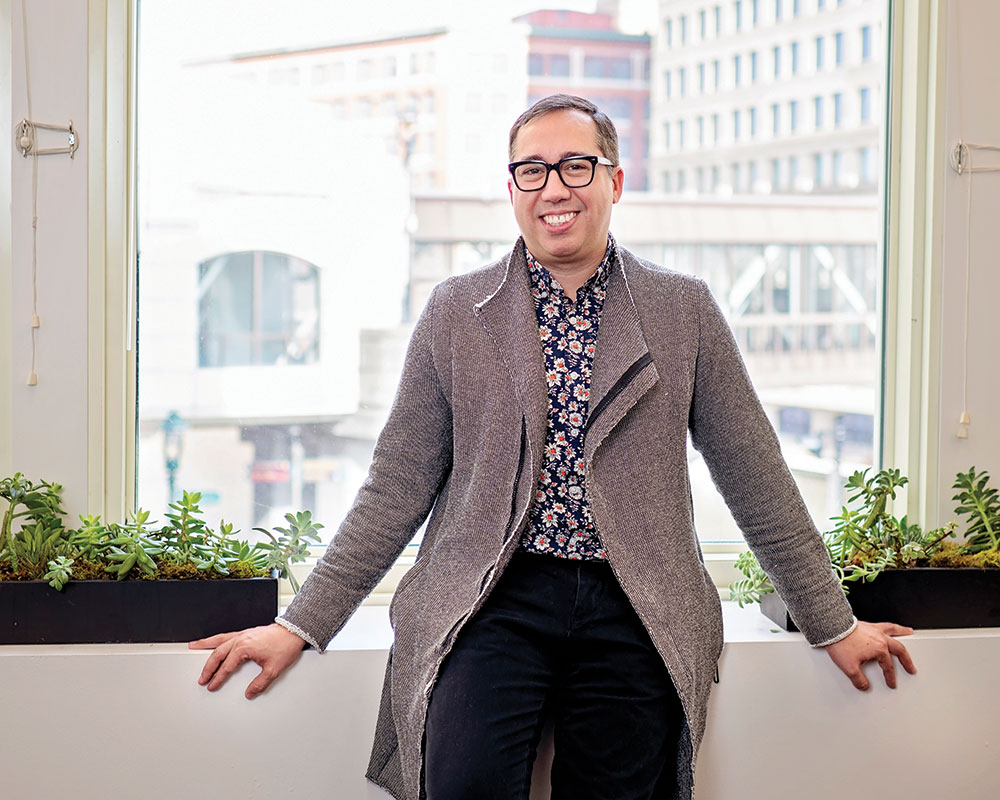
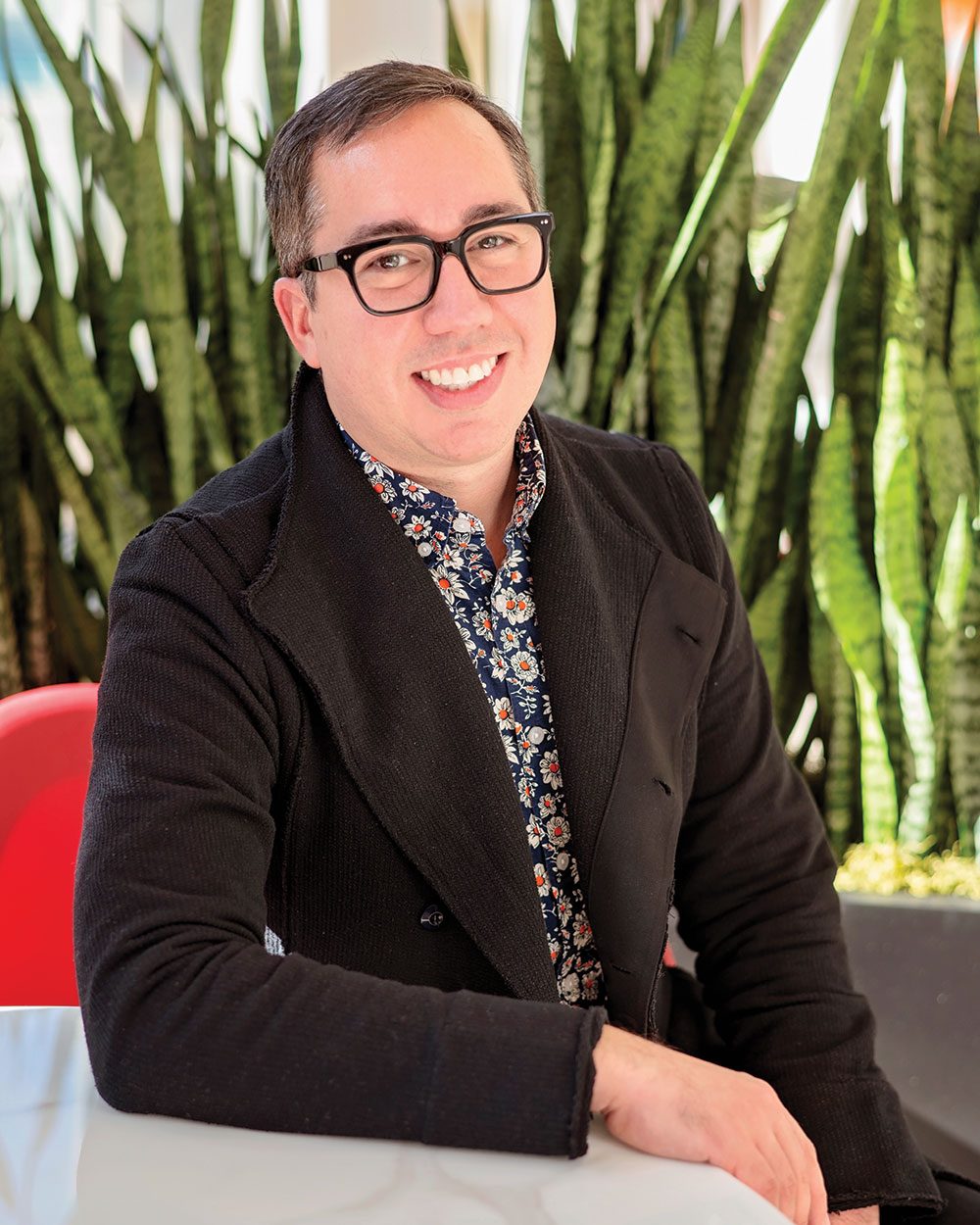



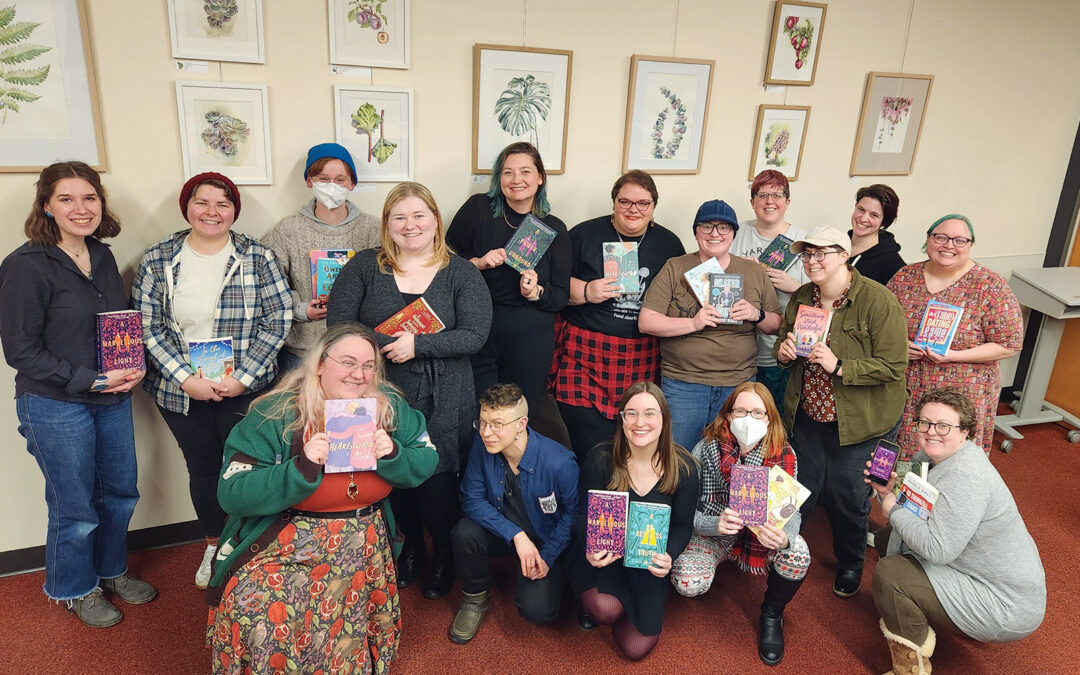
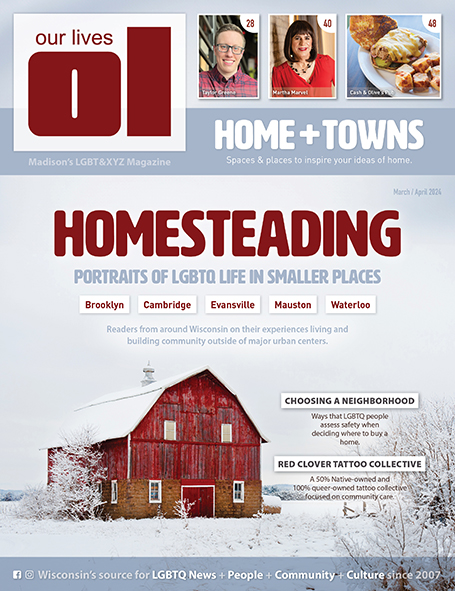
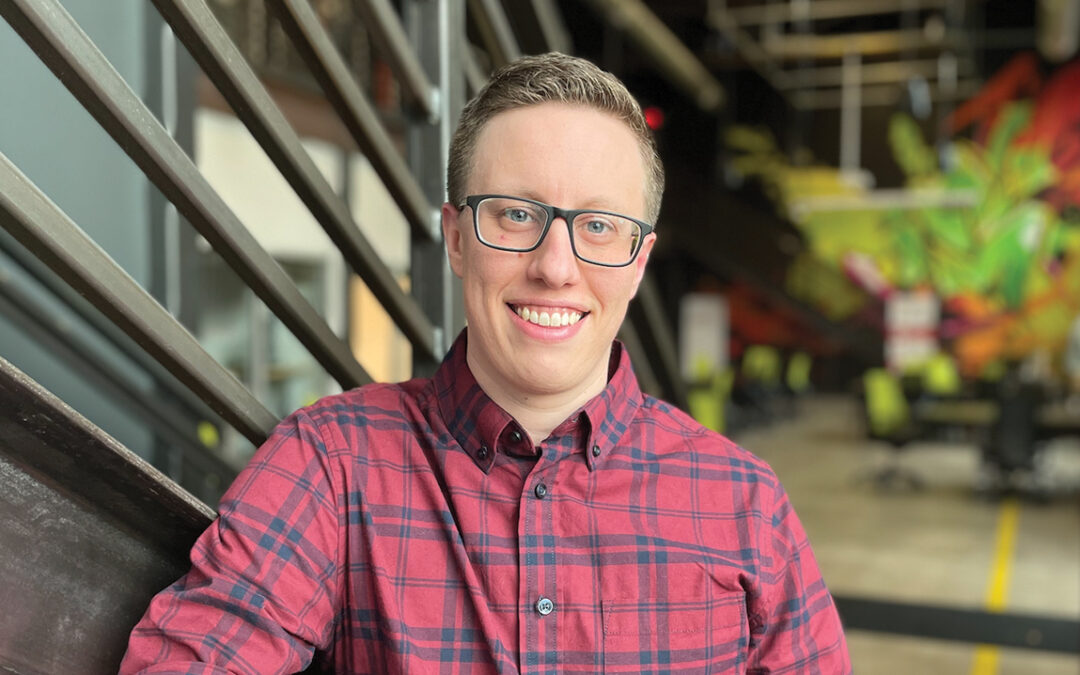
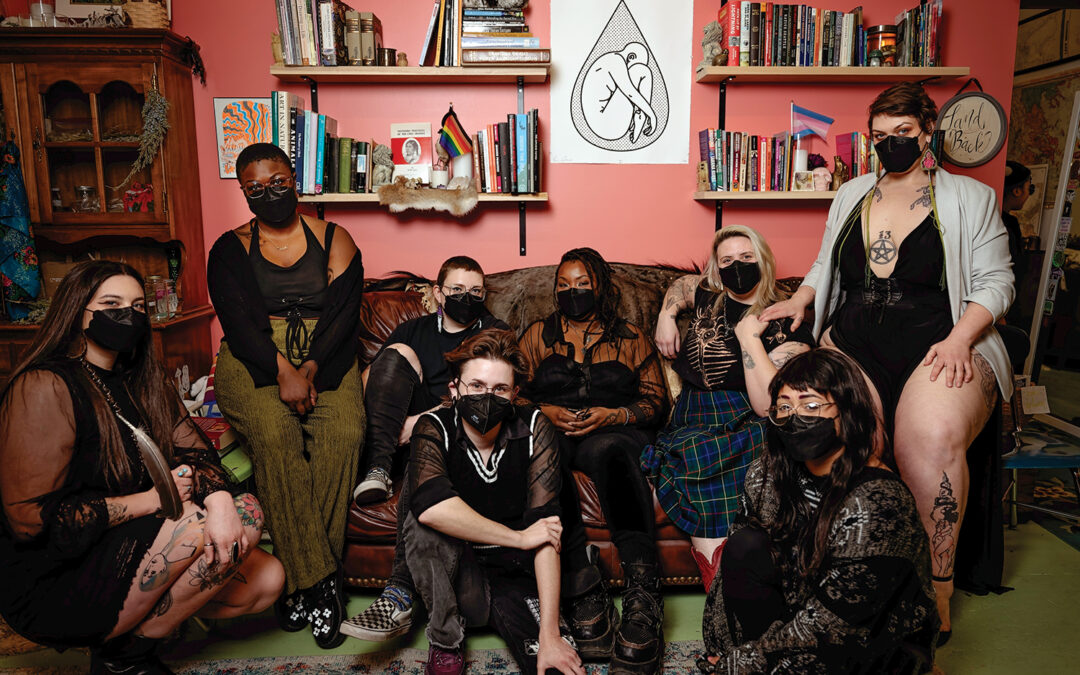
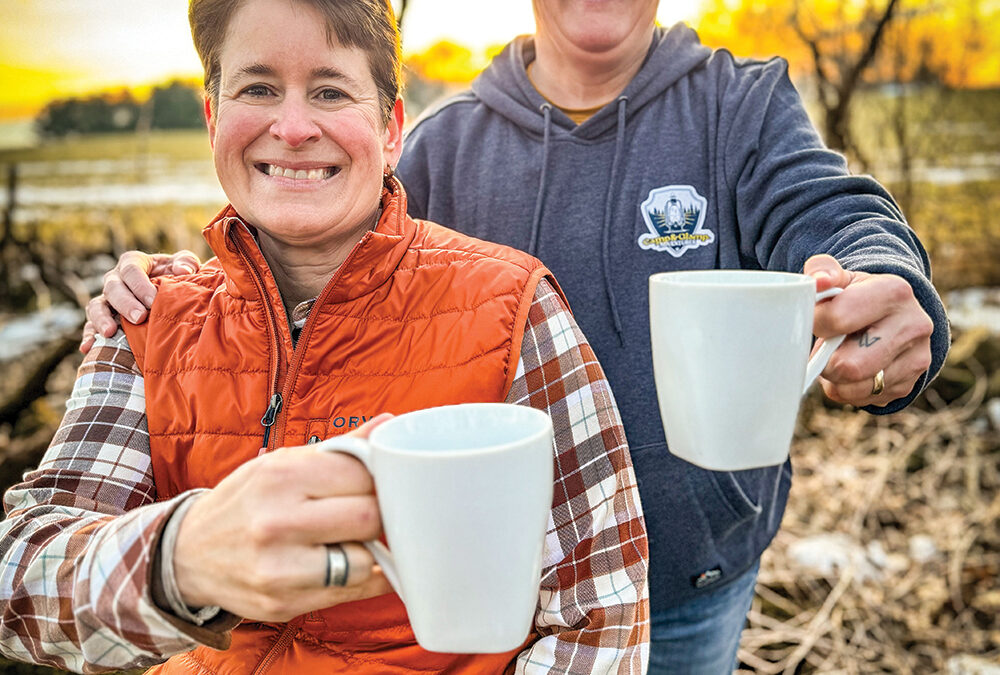
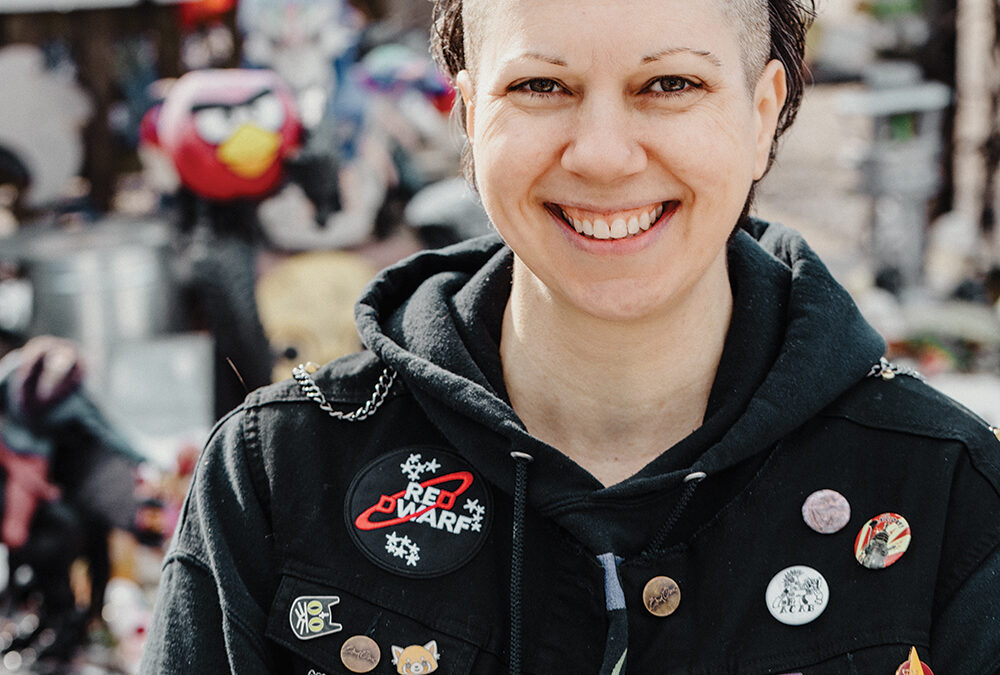

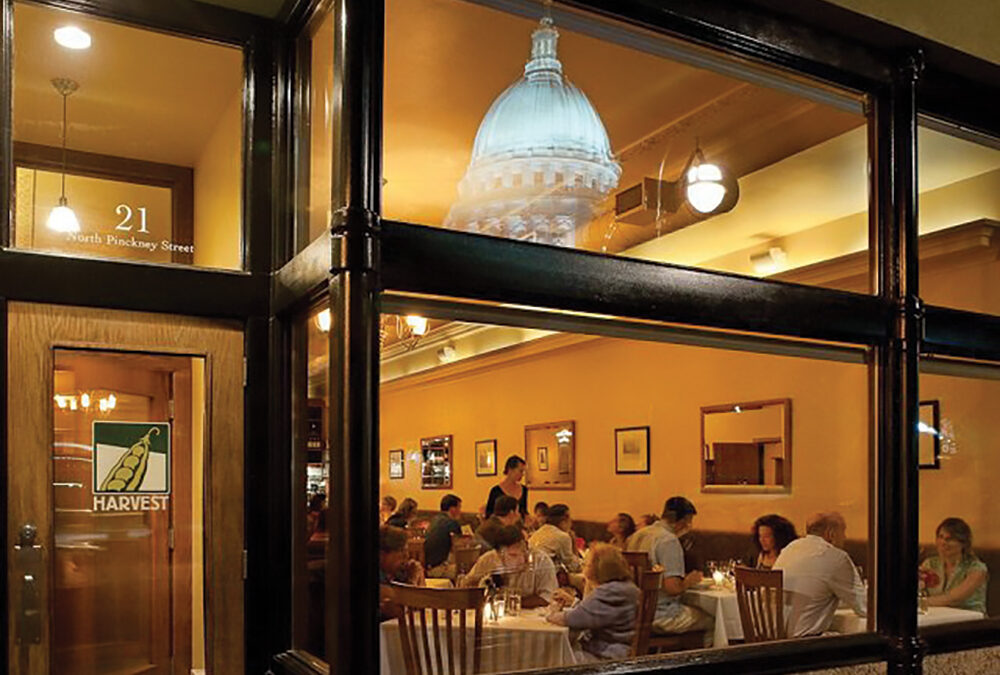

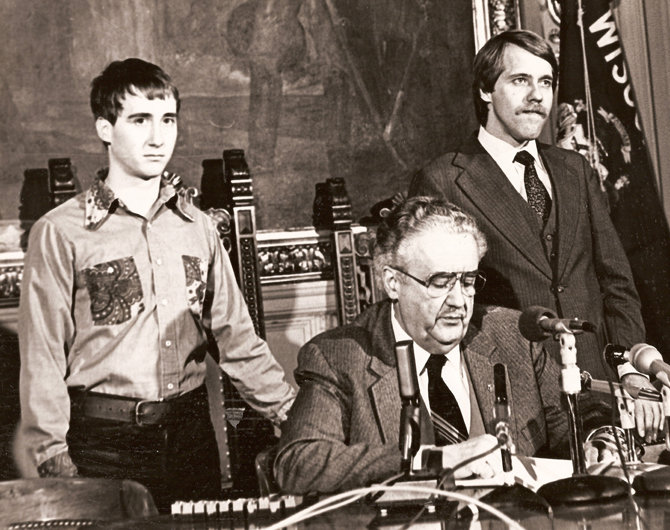









0 Comments